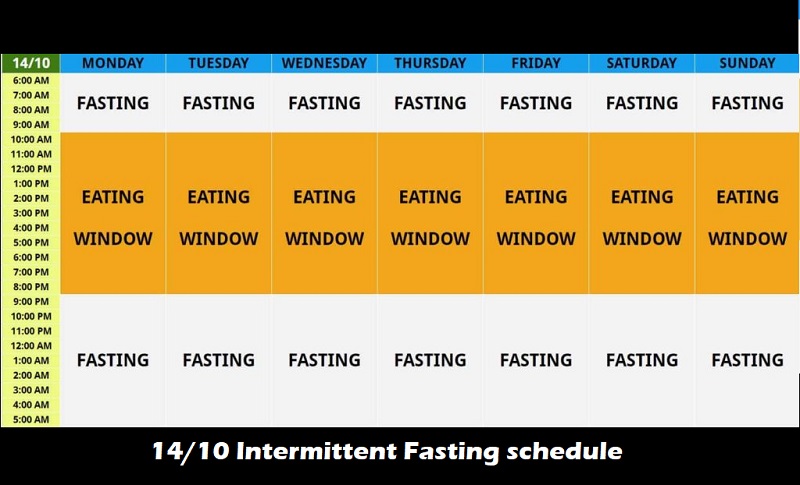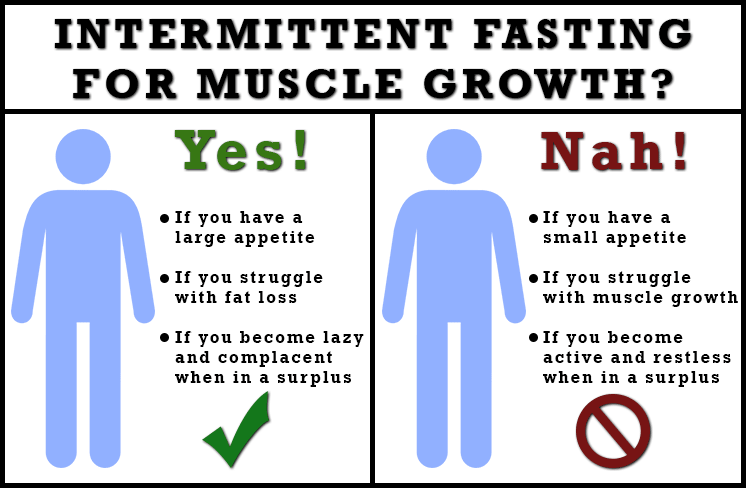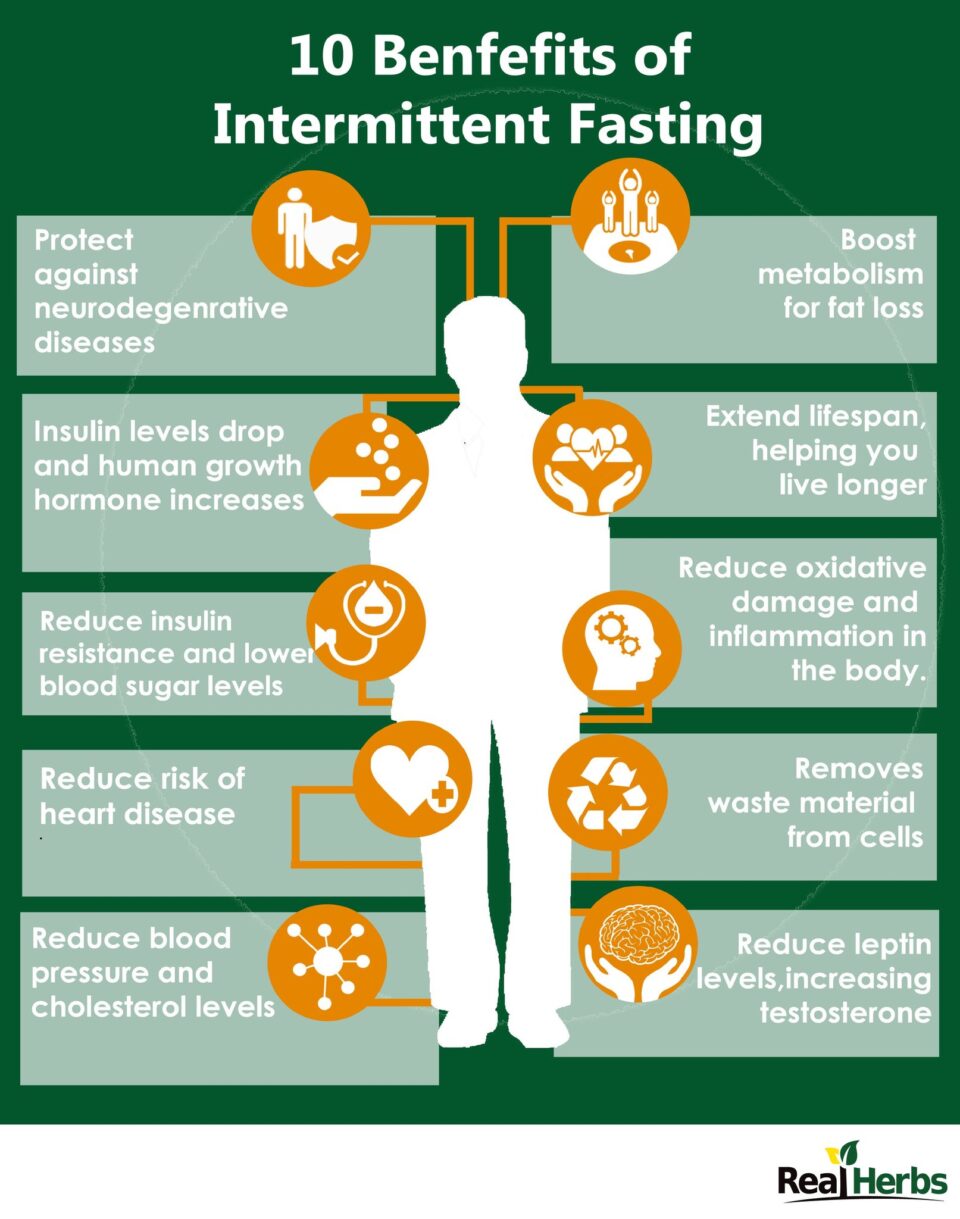If you keep track of all things health and fitness then you would have heard the term ‘intermittent fasting’ blow up in recent years! Intermittent fasting is a method where there are alternate periods of eating with periods of fasting.
The word ‘fasting’ may give you the chills but the truth is that we already fast naturally; in our daily life. Because an average human sleeps for 7-8 hours every day this automatically means that they have ‘fasted’ or gone without food.
And since most of us have our last meals 2-3 hours before we go to bed, this means that you have fasted for just under 12 hours upon waking.
This pattern of eating is mostly adopted by people who want to lose weight. It’s a much simpler strategy because it requires little behavioural change or physical strain.
Intermittent fasting has more than one application and its popularity has shown that a lot of people have found this method useful. Anyone looking to attain these objectives can begin this method:
- simplify their life
- lose weight
- improve their overall health and well-being, such as minimizing the effects of ageing
How Does Intermittent Fasting Work?
When your body is in its digesting and absorbing phase, it is said to be in the fed state. Usually, it starts when you’re consuming food and lasts for 3-5 hours afterward. At this state, it is very difficult for your body to burn fat as your insulin levels will be very high.
After this period, your body goes into the postabsorptive state which means your body is not processing food. It is easier for your body to burn fat in this state as your insulin levels dip at this point.
This is why many people on this kind of eating lose fat without changing the food they’ve been eating or changing their exercise routine.
The Ways of Doing An Intermittent Fast
Alternate-day fasting
This variation involves alternating between fasting every alternate day. On one day you can consume 25% of your normal consumption and go with your regular diet on the next day.
Whole-day fasting
This method involves not eating for a full 24 hours or eating 25% of your ordinary intake. This can be done 1 or 2 times a week as the side-effects can be extreme from fatigue, headaches, irritability and dullness.
5:2 fast
This version was popularized by Dr Michael Mosley in his book ‘The Fast Diet’. It involved eating for 5 days with two days of fasting. On the days of fasting, you can eat 500 calories spread up throughout the day.
Time-restricted feeding:
In this method, you set fasting and eating windows in the 24 hours. For example, you can fast for 16 hours of the day and fit in your eating at the remaining 8 hours of the day. As we already end up fasting while we sleep for good 7-8 hours, this method is pretty simple to apply.
16/8 method

You eat between 11 a.m. and 7 p.m which is about 8 hours and fast for the 16
14/10 method
Here you keep your eating limited to 10 hours between 10 a.m. and 8 p.m and fast for the remaining.

Any of these are tried and tested ways to follow an intermittent diet but remember you should be consuming a nutrient-rich diet with a balance of protein, fats and carbohydrates. You will not ideal results if you consume a diet with processed junk food, rich in fat and carb content.
Intermittent Fasting & Testosterone Levels
Insulin inhibits testosterone production in the body. This fact is the basis of the relationship between intermittent fasting and testosterone. Intermittent fasting affects the way blood sugar is regulated and is strongly related to insulin resistance.
How does eating affect Testosterone Levels?
When we fast, our body undergoes changes to access and provide energy from fat. Our nervous system and many hormones have an important part to play with this process.
Testosterone, a primarily male sex hormone is responsible for the major characteristics of being manly. It is responsible for muscle growth, facial hair, heavy voice, bone mass density, collagen growth, red blood cell production, sexual drive and memory function.
Lifestyle factors including fitness and eating habits play a major role in the production of testosterone. Too much sugar in the diet and overeating can bring down insulin resistance, in turn, driving down testosterone.
A study from the Journal of Metabolism and the British Journal of Nutrition supports the hypothesis that any caloric ingestion, regardless of the macronutrient, brings a decrease in testosterone in males.
Food plays a key role in affecting your testosterone levels in both positive as well as negative manner. It is said that eating packaged food, aerated drinks, consumption of alcohol etc can decrease testosterone levels and hence causing hormonal imbalance.
There are several foods that can naturally boost your testosterone up to a limit but you have to make sure you avoid eating foods that can reduce T-levels in your body.
Fasting Boosts Testosterone Levels
The study of fasting and its effects are ongoing but several studies have given their initial assessment to show links between intermittent fasting and natural testosterone levels.
Intermittent fasting has been shown to improve the production of luteinizing hormone (LH). In men, this hormone stimulates Leydig cells production in testosterone.
A study on intermittent fasting in healthy men looking to improve testosterone showed an improvement in fasting LH by nearly 67% which in turn improved overall testosterone by an amazing 180%.
Research on fasting shows that this kind of eating can aid testosterone’s ability to improve insulin sensitivity. Most intermittent fasters skip breakfast which is the time at which there is a natural spike in cortisol production.
If you have a high level of testosterone, this will correlate to a high degree of insulin production. This will manage your body’s body glucose level preventing sugar crashes and hunger pangs.
Intermittent fasting also gives you fat-burning benefits throughout the day. We’ve read above that losing excess body fat and maintaining optimum levels is one of the easiest ways to increase Testosterone.
Through intermittent fasting, you can more quickly encourage your body to burn off body fat, which in turn improves your testosterone production.
Intermittent fasting stimulates the production of adiponectin in the body. Adinopectin is a protein hormone that influences the metabolism of lipids and glucose and regulates glucose in the body. Adiponectin comes down to an optimum level during fasting, improving insulin sensitivity consequently.
All of these factors then promote the production of testosterone. A study conducted on mice has shown that adiponectin reversed insulin resistance, making it a powerful tool in the treatment of testosterone in men.
Growth hormone and Testosterone are closely related in the way that they are anabolic hormones that work to improve the muscles capability to absorb glycogen, increase the synthesis of protein and improve endurance.
This study by the University of Virginia Medical School showed an improvement in GH levels by up to 2000% with one day of fasting.
This study from the Journal of Clinical Endocrinology and Metabolism has shown that a long period of intermittent fasting ends up decreasing the hormone leptin in the body. This decrease in leptin causes an upshot of testosterone production.
Extreme calorie restriction is not the basis of intermittent fasting. This kind of eating causes just enough reduction in the consumption of calories to cause weight loss, yet it has a very small to none effect on testosterone.
Intermittent Fasting and other body processes
Fasting Improves Fat Burning Capacity
As shown in this study from the Journal of Obesity, subjects who fasted experienced an elevated level of fat burning. When we eat food, we are given more energy that is needed to be used immediately.
This excess energy is stored in the body and Insulin is the hormone involved in its storage. Insulin rises when we consume food, helping to store it either as carbohydrates and fat. Carbohydrates are reduced to glucose units to form glycogen, which is then stored in the liver or muscle.
However, there is limited space in the body for carbohydrates and once reached, the liver will start converting glucose into fat. The unfortunate part is that there is no limit to the amount of fat that can be created in the body.
When we do not eat, insulin begins to fall signalling the body to convert stored fat into energy as no energy is incoming through food. The level of glucose in the body falls causing ‘energy crashes’.
For those trying to lose weight, the body needs to use up the fat resources of the body. intermittent fasting can be one way of doing so.
Fasting Encourages Healthy Detoxification
When there is a calorie deficit, the body turns to fat stores to meet its energy requirements. This releases chemicals from the fat deposits on organs which is a classic Ayurvedic therapy that claims to correct the imbalances in the body.
So fasting can be considered as an opportunity for the body to rejuvenate, improve mental well-being and clarity without being weighed down by the food.
In this study published in the American Journal of Physiology, fasting can bring about autophagy that removes estrogenic compounds which is optimal for a male body.
Intermittent fasting may lower your risk for cardiovascular disease
There is no one way to prevent cardiac diseases but you can try your best to keep it at bay by following a healthy lifestyle: eating right, exercising, limiting smoking and alcohol intake. Research also shows that intermittent fasting may help.
One study on this showed that when subjects followed an alternate-day intermittent regimen over a period of time, they not only lost weight but also showed a decrease in blood pressure, total cholesterol, LDL cholesterol, and triacylglycerol concentration.
Losing weight is the key here and this is a slightly painless way for those at risk to keep heart diseases weight at bay.
Intermittent fasting may slow down the ageing process
Ongoing research has hypothesized that intermittent fasting can be helpful in the field of anti-ageing. One study has shown that fasting can delay the signs of ageing from appearing. Fasting triggers a cellular stress response, which allowed subjects to cope with stress better.
We all know that stress is not good for us in any way and is quick to reflect on our faces. Low-calorie diets such as in the intermittent plan promote the mitochondrial to work harder, thus preventing ageing from accelerating.
Circadian rhythm or the sleep/wake cycle is an internal system of our body that helps us sleep at night and wake up in the morning. Research in this field has hypothesized that intermittent fasting can help us stick to our body’s circadian rhythm, and in turn our metabolism.
You might have noticed that you have difficulty sleeping at night if you’ve eaten a heavy meal. This is because digestion, as well as insulin sensitivity, decreases at night.
Intermittent Fasting and Muscle growth
Strenuous physical activities cause small amounts of damage to the muscles which then work to repair themselves. The process of repairing the muscular tissue improves the strength and size of the muscles by adding protein strands to them. This ‘protein synthesis’ is regulated by many hormones called growth factors of which testosterone is the most important.

Testosterone thus indirectly affects muscle growth as they attach themselves on the muscle cells thus improving the biochemical signals in the muscles resulting in protein synthesis.
It also improves the release of other growth factors which improves the rate at which the muscles adapt to working out.
Keep in mind though, that testosterone is only one of the many factors affecting muscle growth. Internal factors include insulin, growth factor hormones, fibroblast growth etc.
While external factors include the person’s quality of sleep, his diet and training levels.
Thus intermittent fasting affects your muscle growth indirectly.
Nevertheless, we still require a decent amount of testosterone to increase our muscle size. Apart from natural Testosterone boosting foods and herbs, if your goal is to achieve higher T-levels, you will need to put in that extra secret ingredient to compete with professionals or look like them. At capsu.org, we are here to help you choose the best testosterone boosters as per your age and goal. We collect all the information after checking several reviews, filter the genuine ones and sometimes after testing personally.
Side Effects Of An Intermittent Fast
For a healthy person on a balanced diet, intermittent fasting should offer little to no side effects. Of course, any drastic change in a person’s diet will be difficult in the initial stages. One may even feel headaches, irritability and sluggishness for a few days. However, these symptoms should subside in a few days and most people go back to functioning normally.
You should not be intermittent fasting if you are:
- Pregnant or nursing
- You are chronically stressed or suffer from anxiety
- Have or are recovering from an eating disorder
- Are under 18
Even if you do not have any of the above conditions, it is safer to consult with your healthcare professional prior to beginning this diet. There is a lot of research studying its short-term effects but if you want to continue it on a long-term basis, we would strongly advise you seek medical advice.
It is easy to dismiss the intermittent diet as another fad but this method has been practised by our ancestors and helped them thrive. In many ways, the intermittent fasting protocol brings us closer to their eating patterns as food is eaten only when required rather than for leisure or taste.
Think about it, when you’re sick you are often told to stick to liquids of light solid to help you recover. An intrinsically human response, the body needs to take a break from processing food to help hormones and blood cells fight the infection.
A lot of religions around the world also preach fasting to be a part of their routines as they believe it helps reset the mind and body and helps humans be more dutiful and moral.
